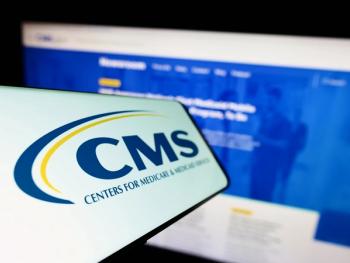
Pharmacy Management
Latest News
Latest Videos

CME Content
More News

As American Pharmacists Month begins, Alan Corley talks the importance of pharmacists and the value of the profession personally and to the overall community.

Lowering prescription drug costs for patients, saving taxpayers money, helping small businesses level an anti-competitive playing field: all of this is at stake.

Pharmacists should be aware of workplace hazards involving sharps and, if necessary, initiate oPEP.

Federal court reviews standing to challenge to federal agency action.

As the end of this Congress approaches, the National Community Pharmacists Association is lobbying members to pass pharmacy benefit manager reforms.

Three of the largest pharmacy benefit managers ––Express Scripts, Optum, and Caremark––are listed in the suit.

Federal statutes and regulations outline the expectations

With the introduction of expensive drugs and associated challenges for hospital budgets, pharmacy leaders benefit from strategically managing financial, clinical, and regulatory factors for sustainable care delivery.

New transparency initiatives will go into effect on January 1, 2025, building off previous actions by the Centers of Medicare and Medicaid Services.

High-cost novel therapies challenge payers and patients, while biosimilars help balance affordability.

The request comes as increased scrutiny is levied toward pharmacy benefit managers for alleged unfair business practices.

In survivors of lymphoma with fragmented transition of care, preparedness and activation for the next phase of their survivorship was lacking.

Examples include reviewing antibiotic doses, identifying drug-drug interactions, and implementing fall prevention strategies.

President of NACDS, Steve Anderson, discusses how the events at Total Store Expo reflect on the association's goals of innovation and a focus on public policy.


A pharmacy's relationship with its state board(s) of pharmacy is crucial for its operation and success, yet it is often overlooked due to the complex demands on pharmacists and pharmacy owners.

Community pharmacy leaders should focus on improving quality of work-life for their employees.

Although important for patient health care, pharmacies’ convenient locations leave staff prone to workplace violence.

Unbridled drugflation, or a point-in-time measure of the rising cost of pharmacy benefits, is taking its toll on corporate bottom lines and household budgets.

Career ladders for pharmacy technicians not only support the staff themselves, but also the broader success of the health system.

If properly implemented, increasing the pharmacist’s clinical authority could ensure increased access to care for patients and advance the practice of pharmacy.

Pharmacists can prevent medication errors through knowledge, communication, and education

Leaders Must Continue to Prioritize Empathy and Human Connection.

An analysis of interaction checkers and product summaries revealed large differences in the consistency and reliability of providing accurate information on potential drug-drug interactions.

Panelists identify key public policies that pharmacies would benefit from acting on in 2024.












![[Technology can] aid and support to improve clinicians' workload and to reduce burnout, [which] is vital to retaining clinicians in many facilities. Image Credit: © woravut - stock.adobe.com](https://cdn.sanity.io/images/0vv8moc6/pharmacytimes/cfd2075f5bc7a307a231a88b9692a62f465d2ca3-530x396.png?w=320&fit=crop&auto=format)























